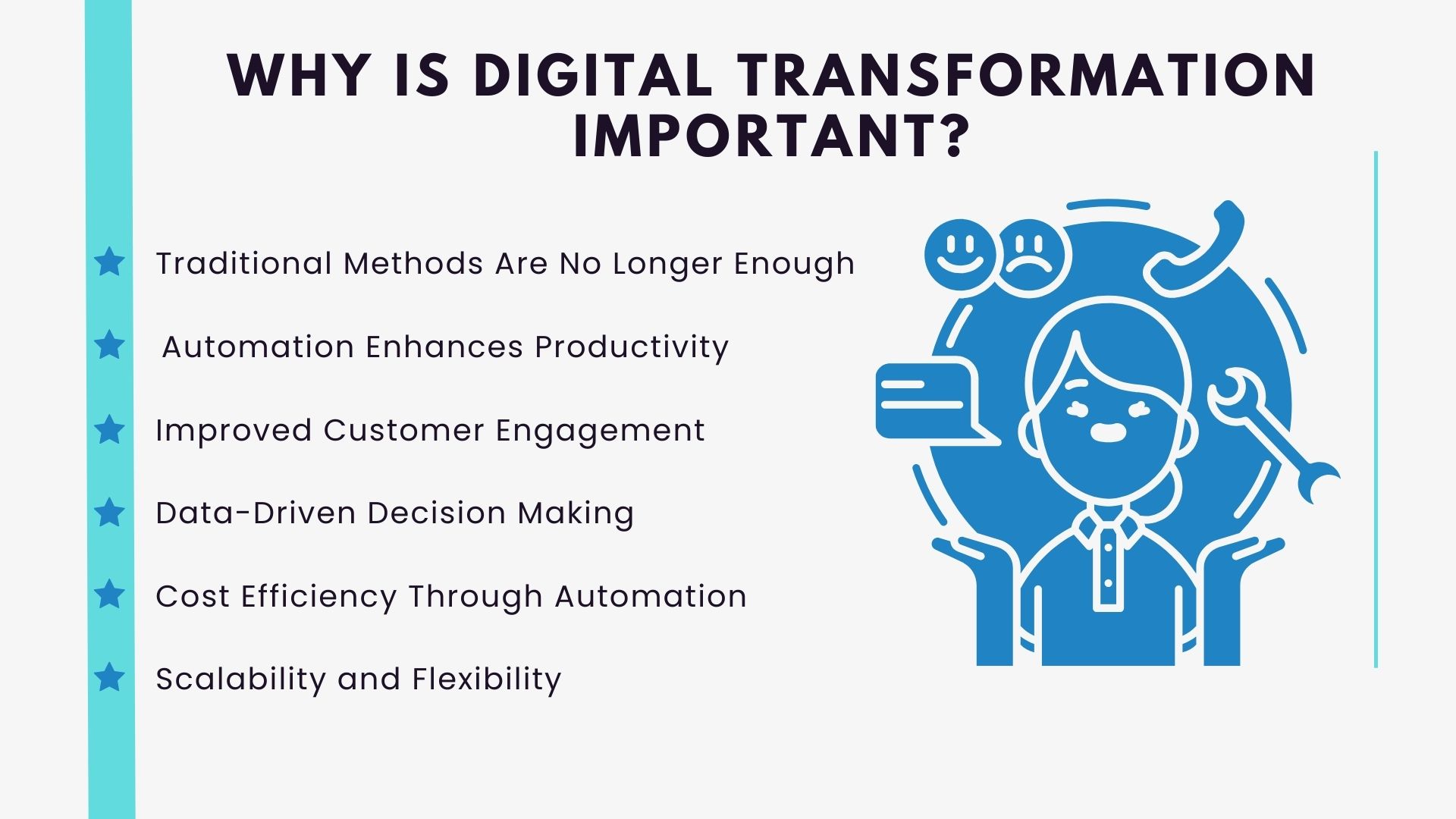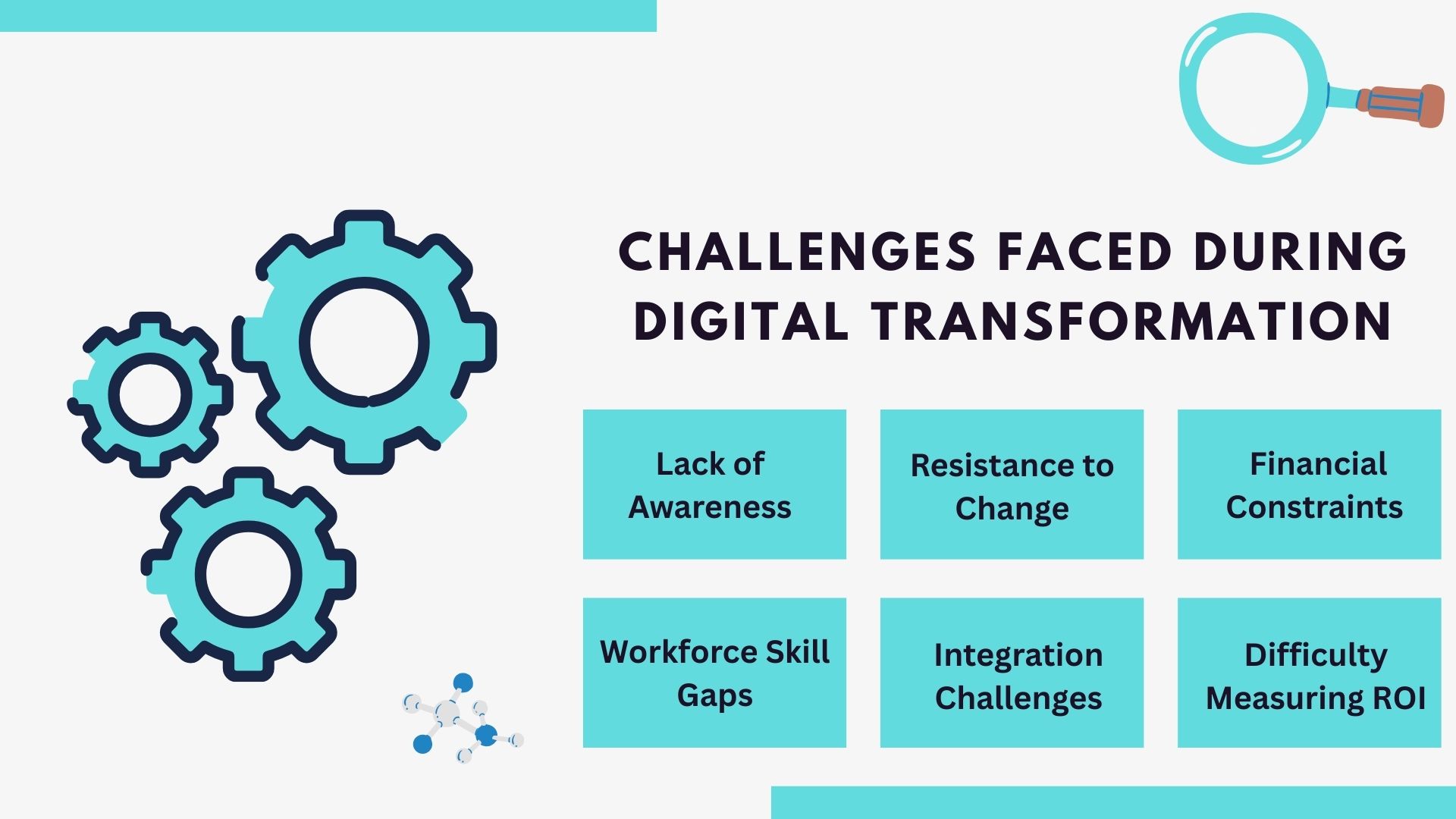Embracing Digital Transformation: A Roadmap for the Future of Business

Digital transformation is becoming a requirement in today’s rapidly changing corporate environment, not just a trendy term. It describes how digital technology is incorporated into every aspect of a company, radically altering how it runs and provides value to clients. While many businesses have relied on traditional methods for decades, a new wave is emerging—where the next generation takes charge and is eager to learn, adapt, and evolve. When this generational shift occurs, FX31 Labs comes into the picture to support, guide, and implement digital change. We ensure business owners don’t just adopt digital tools but gain real learning, clarity, and control over their transformation.
Regardless of your size—startup, MSME, or major enterprise—digital transformation presents a chance to expand your market reach, create resilience in a competitive climate, and uncover new efficiencies. It enables businesses to become more agile, innovative, and responsive to changing market dynamics. The world is witnessing a shift in how companies interact with customers, manage internal processes, and leverage data to drive decision-making. From leveraging AI and machine learning to adopting cloud platforms and data analytics, businesses across industries are transforming their core operations to keep pace with technological advancements.
What is Digital Transformation?
Adopting digital technologies, platforms, and procedures to enhance customer experiences, business operations, and overall agility is known as digital transformation. This can entail embracing digital marketing channels, automating tedious operations, utilizing data analytics to make well-informed decisions, or putting cloud-based software into place.
The goal of digital transformation is not just about technology, but also about transforming the mindset and culture of an organization. It encourages continuous innovation, quick adaptability, and customer-centric thinking. Companies that embrace this shift are often able to respond faster to market demands, innovate more effectively, and deliver greater value to stakeholders.
Why is Digital Transformation Important?

For many organizations, traditional ways of doing business have worked for years. However, the digital age demands a shift. New-age businesses are born digital, while older organizations need to reinvent to stay relevant.
Digital tools help automate repetitive tasks, reduce errors, and streamline operations, leading to better productivity. They enable businesses to engage with customers through multiple channels, provide faster services, and personalize offerings. With access to data, companies can make informed decisions that lead to improved outcomes. Automation and digital workflows often result in cost savings over time. Digital platforms are flexible and scalable, allowing businesses to grow efficiently. Moreover, digital marketing and e-commerce have broken geographical boundaries, allowing businesses to reach global markets.
Digitally mature businesses are also more resilient to disruptions. For example, during the COVID-19 pandemic, companies that had already adopted digital tools were better positioned to maintain operations remotely and continue engaging customers online.
Also read: Why 80% of Digital Transformation Projects Fail – The Hard Truth & How to Succeed
The Changing Face of Businesses
Across industries, a shift is underway. Many legacy companies are embracing digital transformation to stay competitive, while younger companies are integrating technology from day one. For example, traditional retailers are moving to e-commerce platforms, manufacturers are investing in IoT and automation, and service providers are leveraging AI for customer support.
A well-known example is Domino’s Pizza, which transformed from a traditional food delivery company into a technology-driven enterprise. Their app, GPS tracking, AI-based chatbots, and integrated ordering platforms helped boost customer engagement and operational efficiency. As a result, Domino’s became as much a tech company as a pizza brand.
In the manufacturing sector, General Electric (GE) adopted industrial IoT and predictive analytics to enhance machinery performance and reduce downtime, setting a benchmark for smart manufacturing. Similarly, Siemens has digitized its operations through its MindSphere platform, a cloud based IoT operating system that connects machines and processes for better optimization.
In India, Reliance Jio’s digital-first approach disrupted the telecom market, not only by offering low-cost data but also by building a strong ecosystem through apps and platforms like JioTV and JioMart. Meanwhile, traditional banks like HDFC and SBI are rapidly digitizing services by offering AI-driven chatbots, online loan approvals, and mobile-first experiences to stay relevant in a competitive fintech environment.
The healthcare industry has also seen significant digital evolution. Apollo Hospitals, for instance, uses digital health records, AI-based diagnostic tools, and telemedicine services to enhance patient care. In retail, Tata Group’s acquisition of BigBasket and 1mg and their integration into the Tata Neu platform showcases a digital consolidation strategy aimed at creating a super app ecosystem.
This shift is often driven by a younger, tech-savvy leadership that understands the value of modernization. However, legacy systems, manual processes, and outdated mindsets can still pose significant barriers to innovation. The transition requires both technological upgrades and cultural change.
Challenges Faced During Digital Transformation

Many businesses are still unaware of what digital transformation truly entails and how it can benefit their operations. Resistance to change is another common obstacle, especially when employees and management are used to traditional methods.
McKinsey Research reveals that companies often capture only 25% to 30% of the potential value from their digital transformation efforts. This gap is largely due to failing to realign their strategy and business model to fully leverage new digital capabilities.
Financial constraints can limit investment in new technologies, particularly for smaller organizations. Skill gaps in the workforce can hamper the effective use of digital tools. With a multitude of platforms and tools available, choosing the right solution can be overwhelming. Integration with existing systems can be problematic, leading to inefficiencies. Lastly, security and data privacy concerns often hold companies back from going fully digital.
There’s also the challenge of measuring ROI. Since digital transformation is an ongoing process, companies may not see immediate results, which can lead to hesitancy in investing further. Ensuring the alignment of technology with business objectives and change management strategies is crucial to overcoming these hurdles.
How to Choose the Right Digital Transformation Partner
Choosing the right partner can significantly impact the success of your transformation journey. Look for partners who understand your industry and offer flexible, scalable solutions tailored to your needs.
But beyond technical capabilities, leadership and team quality matter immensely. A good partner brings smart solutions, but a great partner also brings strong leadership, deep managerial experience, and clear communication. These traits ensure that your project is delivered on time, within budget, and with high quality. Their team should have not only technical expertise but a solid understanding of operational and strategic business needs.
It is important to work with firms that provide end-to-end services—from consultation and planning to implementation and support. A strong track record with relevant case studies and client success stories speaks volumes. Clear communication and the ability to simplify complex concepts is essential. Lastly, training and post-implementation support can determine whether your team is truly able to make the most of new systems.
The right partner should also be adaptive, willing to iterate and evolve solutions as your business grows. Businesses should look for partners that align not just on capability, but on vision and values as well.
The Way Forward
Businesses must understand that digital transformation is a journey, not a one-time project. It requires vision, commitment, and adaptability. Awareness and education are the first steps. Leaders should stay informed, attend webinars, network with industry experts, and remain open to experimentation.
Governments and industry bodies worldwide are increasingly supporting digital adoption through incentives, grants, and training programs. The tools and support are available—what matters is the will to act.
Companies like Amazon and Netflix are often cited as benchmarks for digital maturity. Amazon’s use of AI for logistics, customer recommendations, and inventory management shows how digital integration can drive massive growth. Netflix, by using data to shape content strategy and personalize user experience, disrupted the entire entertainment industry.
Digital transformation also holds promise for social impact. EdTech platforms like BYJU’S and Coursera are reshaping education by making learning accessible anytime, anywhere. Similarly, AgriTech startups like DeHaat are helping farmers make data-driven decisions and access better supply chains, proving that digital change can touch every layer of the economy.
Why FX31 Labs is the Ideal Partner for Your Digital Transformation
At FX31 Labs, we understand the diverse needs of businesses across industries and sizes. We offer digital transformation solutions that are practical, affordable, and focused on delivering real outcomes.
Our process begins with understanding your business goals and current systems, followed by co-creating a digital roadmap that aligns with your vision. Whether you need to automate operations, enhance your digital presence, or deploy AI-driven tools, we bring the right expertise and enthusiasm to your transformation journey.
We specialize in crafting strategies tailored to your organization’s needs—from fast-growing startups to evolving enterprises.Our leadership team brings a global perspective, having studied in top institutions in the US and Europe and worked with Fortune 500 companies across diverse verticals, bringing global best practices and deep insight. Our leadership team brings clarity, accountability, and a strong emphasis on quality and efficiency, ensuring your business transformation is in safe hands.
We implement agile methodologies for faster rollouts and iterative improvements. We focus on value, not just features, ensuring our work translates into measurable growth. And we provide reliable support to help your team navigate the post-implementation phase with confidence.
What sets us apart is our passion for innovation and our commitment to partnership. We don’t just offer solutions—we co-create success stories. Whether you’re reimagining customer experience, streamlining backend processes, or future-proofing your business model, FX31 Labs stands by you every step of the way.
If you are ready to start your digital journey or want to explore the possibilities, Fx31Labs is here to help. Let’s transform your vision into action and build a future-ready enterprise together.
Connect with us today and take the first step towards your digital transformation.
